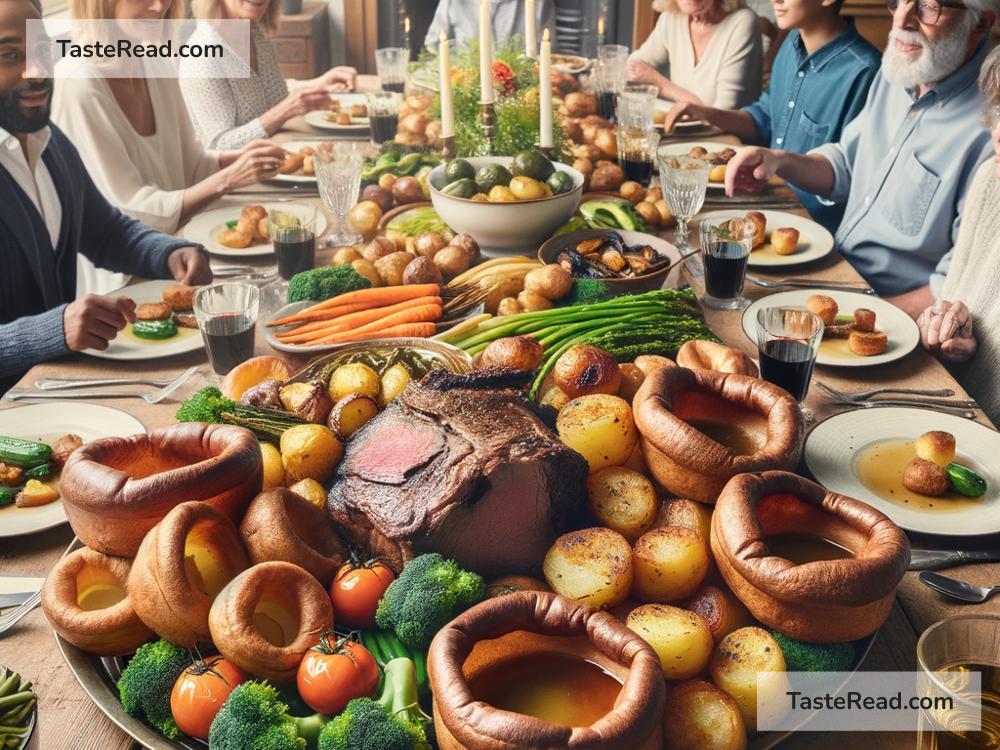How the British Sunday Roast Became a Family Tradition
In the heart of British culture, the Sunday Roast is a tradition that gathers families around the dining table, overflowing with warmth, laughter, and hearty food. This tradition, deeply rooted in British history, has evolved from a simple meal to an integral part of family life in the UK. But how did the Sunday Roast earn its special place in British homes? Let’s delve into the delicious story of how this weekly feast became a cherished family tradition.
The origins of the Sunday Roast date back to medieval times, when the village would gather after church to cook a large piece of meat over a communal fire. The meat, often beef, would slow-cook for hours, filling the air with enticing aromas. This practice was not just about feeding hungry stomachs; it was a moment of community bonding, a chance to catch up with neighbors, and share news and laughter.
As time went by, the tradition found its way into individual homes, though its heart—the idea of coming together—remained unchanged. The British love for this tradition grew, especially with the advent of the Industrial Revolution. In those times, families had to adapt to the rigorous demands of work in factories and mines, leaving little time for daily meal preparations. The solution? A hearty meal that could be prepared in advance and enjoyed without haste.
Typically, the Sunday Roast comprises a succulent meat centerpiece—beef, chicken, lamb, or pork—surrounded by a constellation of side dishes: crispy roast potatoes, golden Yorkshire puddings, an array of seasonal vegetables, and the crowning glory, a rich gravy. Each element of the roast has its own history and place in British hearts. Yorkshire puddings, for instance, were originally a clever way to make use of the fat that dripped from the roasting meat, turning it into a delicious and filling addition to the meal.
This feast demands time and care to prepare, making it a perfect Sunday endeavor. Sundays were traditionally a day of rest, when the pace of life slowed down, and families could dedicate time to gathering and enjoying each other’s company. The significance of the meal extends beyond its flavors; it’s a time for storytelling, sharing week’s triumphs and tribulations, and strengthening family bonds.
Moreover, the Sunday Roast is adaptable, reflecting the diversity of modern British families. It encompasses not just the traditional meats but also vegetarian and vegan alternatives, ensuring that everyone, irrespective of dietary preferences, can be part of this communal experience. This adaptability ensures the tradition remains relevant and cherished across generations.
As British society evolved, so did the significance of the Sunday Roast. It became synonymous with home and comfort, a buffer against the frenetic pace of modern life. In a world where meals are often rushed and solitary, the Sunday Roast stands as a bastion of togetherness. It encourages the art of slow dining and conversation, inviting families to pause, reflect, and connect.
The tradition of the Sunday Roast also extends beyond the confines of the home. Pubs and restaurants across the UK serve their renditions of the roast, offering a communal space for those away from family or looking to experience British culinary tradition firsthand. This highlights how the Sunday Roast is not just a meal but a slice of British culture, offering warmth and welcome to all.
In times of celebration or sorrow, the Sunday Roast is a comforting constant, a culinary hug. It mirrors the cyclical nature of life, with families passing down recipes, techniques, and stories, weaving the tradition into the fabric of British familial life. Whether it’s a grandparent teaching a grandchild how to make the fluffiest Yorkshire puddings or a parent sharing the secret to the perfect roast potatoes, these moments are invaluable, tying the past with the present and future.
The British Sunday Roast, therefore, is more than just a weekly meal; it is a celebration of family, history, and culture. It embodies the spirit of togetherness, inviting people to gather, share, and delight in each other’s company over delicious food. As families across the UK continue to cherish and uphold this tradition, it remains a beloved ritual, bringing warmth and joy to Sundays, one roast at a time.


